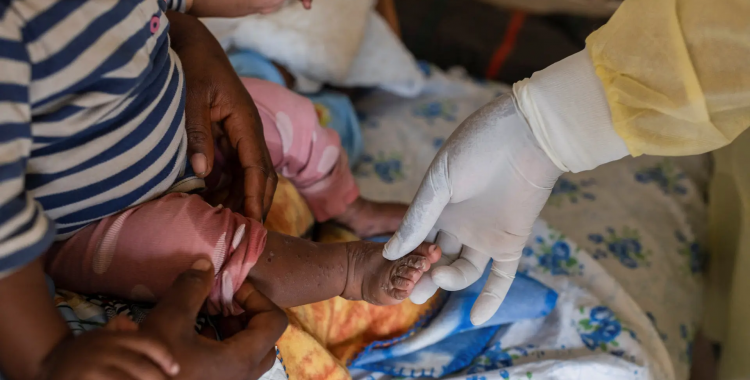“Our surveillance system has been strengthened at a national level, we are talking about municipal, provincial and national levels, and so far no cases of mpox have been recorded, but the risk is high because we have a vast border with the DR Congo,” said the head of the Disease Control Department of the National Directorate of Public Health of Angola, Eusébio Manuel, this Wednesday.
Speaking to Lusa, the official highlighted that the “intense movement” of people and goods at the official and unofficial borders between Angola and the DR Congo justified the preparation of a contingency plan, aimed at preventing the spread of the virus.
“All [borders] are open, there are no impediments to movement and every precaution is essential, which is why the measures must be rigorously implemented and adhered to by the population,” he stressed.
With the DR Congo, the epicentre of mpox, already recording a more lethal variant of the virus, the authorities say they are implementing effective measures to prevent the possible introduction of cases into the country.
The reinforcement of the surveillance system, basic containment measures and individual safety, “such as those implemented during Covid-19”, are among the actions taken to prevent possible contagion, he said.
Early detection of the disease in a given area, avoiding contact with infected people and raising public awareness of the risks of the disease are other measures.
The recommendations also aim to reduce the risk of transmission from animals to humans, “that is, also avoiding the consumption of meat from wild animals, especially in forested areas or in areas where game meat is consumed”, he said.
Eusébio Manuel acknowledged, on the other hand, that the consumption of game meat is part of the diet of many citizens with fewer resources, especially those living in villages and communes in the interior of the country, but he appealed, however, for people to avoid consumption at this stage.
“Those who live in a commune, in a village, usually eat game meat because that is what is available, but in situations like these we have to implement special measures”, he concluded.
The Ministry of Health recently announced that it is maintaining an active state of alert in order to prevent the introduction of mpox into the country, after it was declared a public health emergency by the African Union and the World Health Organization.







